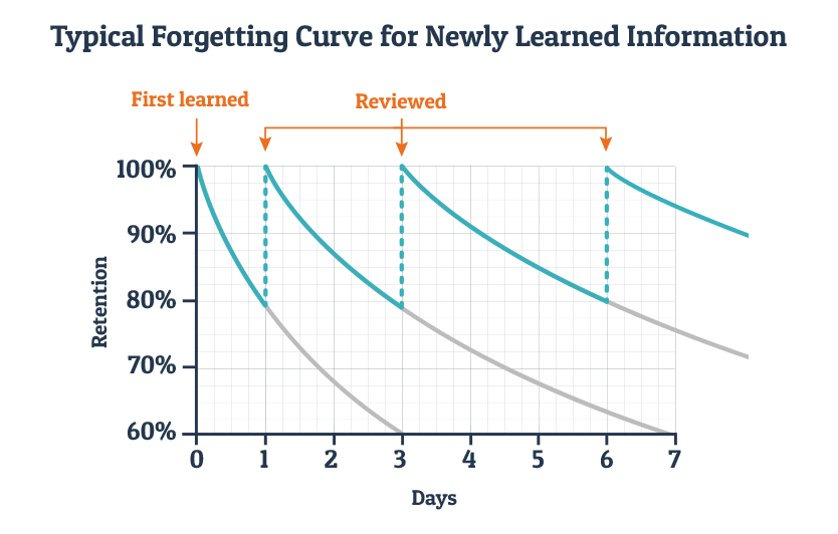
Nudge Now
I’m getting to the age where I walk into the room and immediately forget what I want. As we age, our power of recall diminishes and learning a new skill or taking on knowledge can be incredibly infuriating. The inability to recall vital information can knock confidence, increase stress, and even lead to missed opportunities.
But did you know that you can forget up to 60% of training within the time immediately after learning?
This week we are exploring the Ebbinghaus Forgetting Curve, which demonstrates how memories reduce over time, and a straightforward technique that helps reinforce training, so we remember more effectively.
What Is the Ebbinghaus Forgetting Curve?
In 1885, the German psychologist Hermann Ebbinghaus published the results of an experiment on his ability to recall a series of information. It revealed crucial aspects of memory and recall.
1. It showed that if there is no attempt to review information after the initial learning, we remember less and less as time goes by. The drop in retention is exponential in the period immediately after a training session. How often have you left an event with exciting information only to find you can’t recall it hours later?
2. Learning with little or no meaning follows the Forgetting Curve closely. Remembering information from an engaging and exciting podcast is so much easier than for a subject in which you have little interest.
3. Presentation and communication are crucial. The recall is stronger when information presents clearly and logically.
4. Our wellbeing impacts memory. A lack of sleep or increased stress leads to poorer retention of knowledge as our rest patterns help the brain process and store all the information we absorb daily.
Despite this research being over 130 years old, it has never been more relevant. In a fast-moving world, our attention spans are shortening, and we are bombarded with information constantly. How on earth are we expected to remember everything?
Here’s the secret. We’re not! But we can use a straightforward technique to help.
Nudge Learning
Luckily our brains are great at remembering stuff that keeps us from harm, such as allergy triggers, routes that are safe to travel, or those people that are important to us. And we are adept at recalling powerful and emotional experiences for longer. But that means our capacity to retain new learning is where we find it more challenging, and it is allowed to drop from memory too quickly.
But there is good news. Ebbinghaus discovered that reviewing key learning at points along the Forgetting Curve means we retain more for longer. And this is where nudge learning plays its part.

Timing for these sessions is crucial and should happen when learning has fallen away, but not to the point where you start over. And, although forgetting starts again, it occurs at a slower rate. That's why each new curve shown above is shallower than the last. But these sessions also need to be engaging for you and your teams. Here are some tips to make a difference in your learning.
Give it personality – personalised nudges have more chance of success
Short and Sweet – intuitive and speedy nudges improve engagement
Timing is everything – Nudges need to be available as and when required
Easily accessible – Use multiple platforms to encourage different user groups
Seek feedback – check in with learners to make sure you are getting it right
This week try giving yourself, and your teams a NUDGE to refresh your latest learning.
I’d love to know how you get on.
Have a brilliant week!
David Rogers, Chief Business Explorer, Fuelled Fit and Fired Up Ltd



